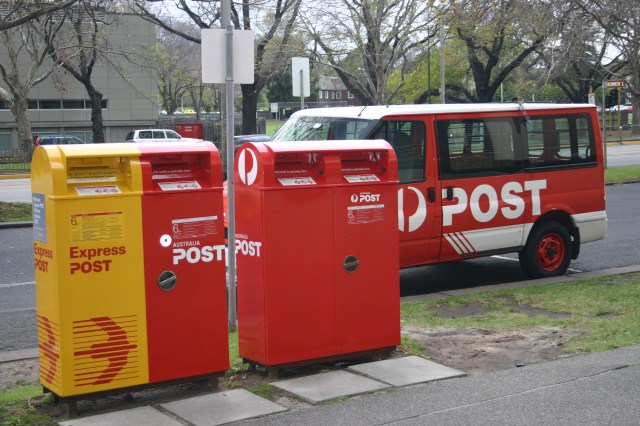
In what is being hailed as a victory for print, a Parliamentary inquiry into Australia Post’s operations is recommending ACCC scrutiny of business mail pricing be restored.
PIAA chief executive Bill Healey says the Senate Inquiry Report by the Environment and Communications Legislation Committee has opened up a ‘Pandora’s box’ of issues for Australia Post, including its pricing structures.
Among its findings, the committee recommends “Australia Post be required to submit notifications of changes to the price of business mail services to the Australian Competition and Consumer Commission.”
[Related: More Australia Post news]
Healey, who has been campaigning for the watchdog to be recalled since the regulation was relaxed to monitor only ordinary letters in 2011, calls the findings a ‘major victory’ for the printing industry and the public.
“Many of our members have invested heavily in technology and equipment for pre-sorting, saving Post significant amounts of money on the basis of receiving lower pricing for bulk mail than for ordinary mail, only to have those margins eroded,” he says.
“Australia Post’s Trojan Horse approach to industry consultation on this issue has been exposed for the sham it was. It is now time for them to be pulled back into line and to be subject to ACCC scrutiny.”
Concerns about how Australia Post allocates its internal costs are addressed in the report, with a recommendation that the Minister for Communications undertake “a thorough examination of cost allocation within Australia Post and report back to the committee.”
Healey says: “Some of Post’s own research on mail volumes and consumer preferences contradict the assessments on the decline of mail it has been using to justify its pricing strategies. This will now be open to Ministerial scrutiny.”
The PIAA was joined by Mailing House, the Communication Workers Union (CWU) of Australia and Post Office workers speaking up for the future of print, contesting Australia Post chief executive Ahmed Fahour’s assertions that it is in decline.
Mailing House says that threats to electronic communications, such as electronic eavesdropping, data and identity theft and privacy issues posed by social media, could result in ‘a significant flow back to physical mail.’
The CWU says that while its members are delivering fewer letters, small parcels and packets are replacing any decline in traditional mail.
It says that Australia Post’s outlook is more pessimistic than that of international experts, and “mail is not dead. This is not a business that is going to go away anytime soon.”
[Related: More direct mail news]
One post office worker, who had been sorting mail for more than 18 years says he has noticed is the steep decline in mail with postage stamps attached.
“I am curious to know if Mr Fahour’s steady decline of letters is calculated on the sale of postage stamps ignoring all the bulk lodged and unaddressed advertising mail we still deliver,” the worker says.
LPO Group, which looks after the interests of licensed post offices, says that while addressed letter volumes may have fallen, there has been a “vast increase” in catalogues and promotional mail.
LPO vice chairman Andrew Hirst says: “When you take into account all the unaddressed mail that has tagged along, the decrease is not as big as Australia Post say from our perspective.”
Australia Post’s own consumer surveys support the ongoing role of physical mail as the preferred communication for bills, statements and catalogue advertising.
Its annual report for 2012 to 2013 states that more than 40 per cent of its larger customers increased their use of bulk mail.
To take stakeholder views into account in Australia Post operations in future, the committee also recommends that the Minister of Communications form a postal network strategy group.
It also advises that Australia Post review the margins on the postal products it sells to licensees, to ensure they are in line with commercial practice, and if found to be unfair, a study should be conducted to determine the appropriate rate.
Comment below to have your say on this story.
If you have a news story or tip-off, get in touch at editorial@sprinter.com.au.
Sign up to the Sprinter newsletter



